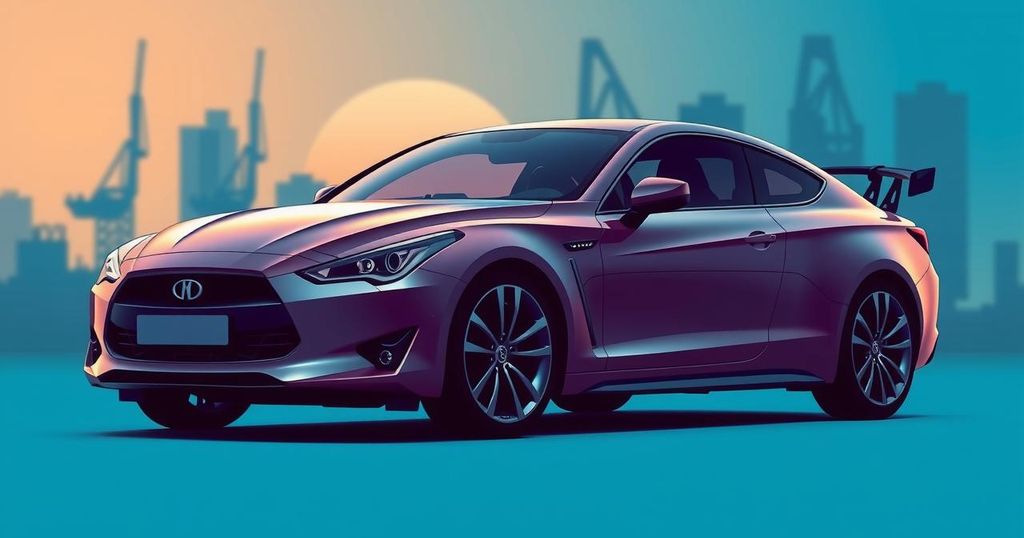The U.S. is advocating for India to eliminate tariffs on car imports in a proposed trade deal, but India is reluctant to lower duties to zero immediately. These high auto tariffs are set to be discussed formally as Tesla prepares to enter the Indian market. While India considers its position, the trade agreement aims for $500 billion in bilateral exchanges by 2030.
The United States is advocating for India to eliminate tariffs on car imports within a proposed trade agreement. However, India remains hesitant to immediately reduce such duties to zero, although it is considering further reductions. These significant auto tariffs are expected to be a focal point in formal discussions that are yet to commence, particularly as American electric vehicle manufacturer Tesla prepares for its entry into the Indian market.
India’s import taxes on vehicles can reach as high as 110 percent, a point that has drawn criticism from Tesla’s CEO, Elon Musk, who previously abandoned plans to enter this burgeoning market. The high tariffs have also garnered attention from U.S. President Donald Trump, who has condemned India’s auto tariffs and suggested potential retaliatory measures.
According to sources, the U.S. request is for India to reduce tariffs to zero or minimally low levels across various sectors, excluding agriculture. While India has not dismissed the U.S. demands outright, it is currently assessing its position on tariffs after engaging with local industries for feedback.
Following a recent meeting between President Trump and Indian Prime Minister Narendra Modi, the two countries agreed to address tariff issues and target a bilateral trade value of $500 billion by 2030. Indian Trade Minister Piyush Goyal is currently in the U.S. to further these trade talks and has held discussions with U.S. Commerce Secretary Howard Lutnick and plans to meet with U.S. Trade Representative Jamieson Greer.
Despite the U.S. calls for immediate tariff reductions, India is preparing its automotive industry for a transition to a lower tariff framework while establishing safeguards against a flood of cheaper imports. The Indian car market is particularly protected, with local manufacturers, like Tata Motors and Mahindra & Mahindra, opposing any cuts to auto tariffs, citing concerns about investment risks. Nonetheless, India has recently shown movement towards fewer protectionist measures by reducing import tariffs on various products, including luxury items.
In summary, as the U.S. pushes for a reduction in Indian auto import tariffs, India appears to favor a more cautious approach that includes consultation with domestic industry stakeholders. The future of this trade agreement, including any potential lowering of tariffs, remains uncertain but indicative of a cautious willingness to engage in competitive industry practices. The two nations aim to strengthen their economic bonds, aspiring towards $500 billion in bilateral trade by 2030 despite existing tensions around tariff structures.
Original Source: www.business-standard.com




